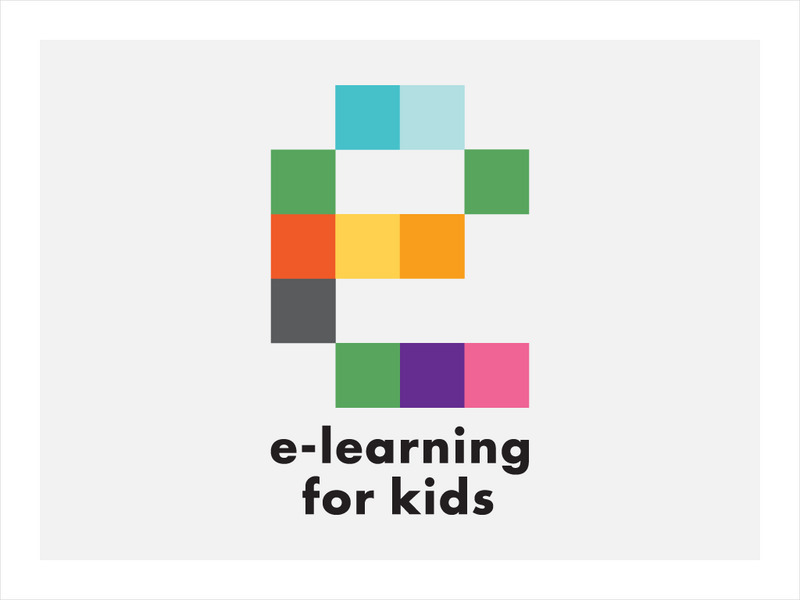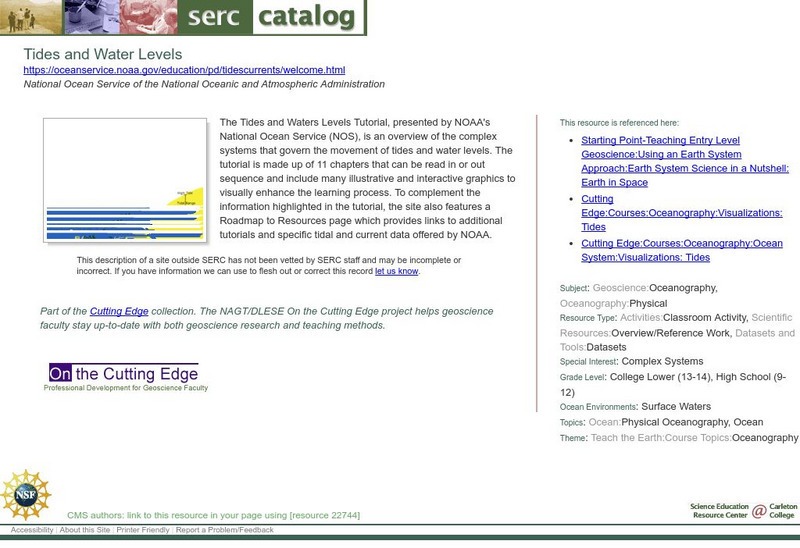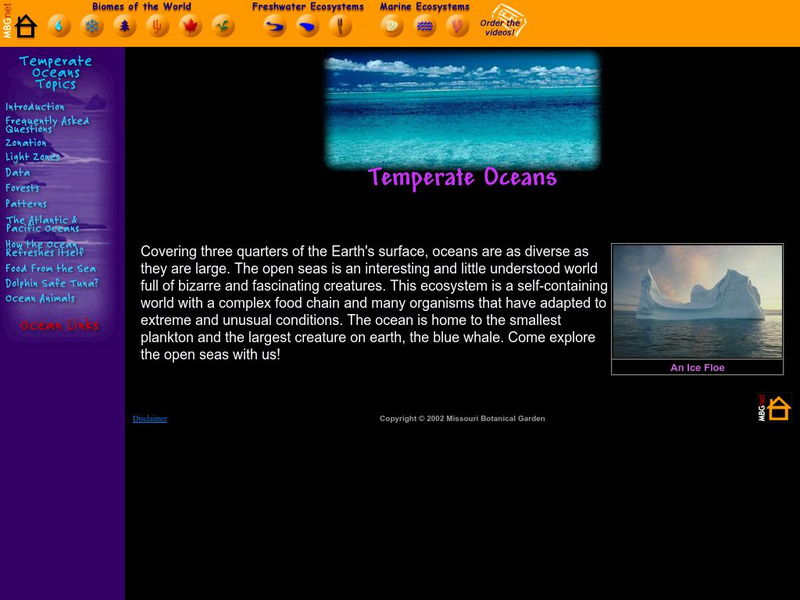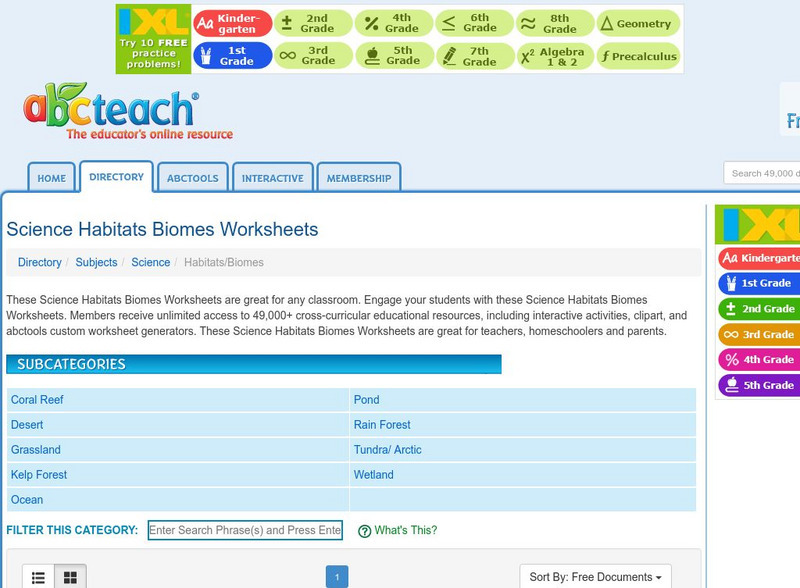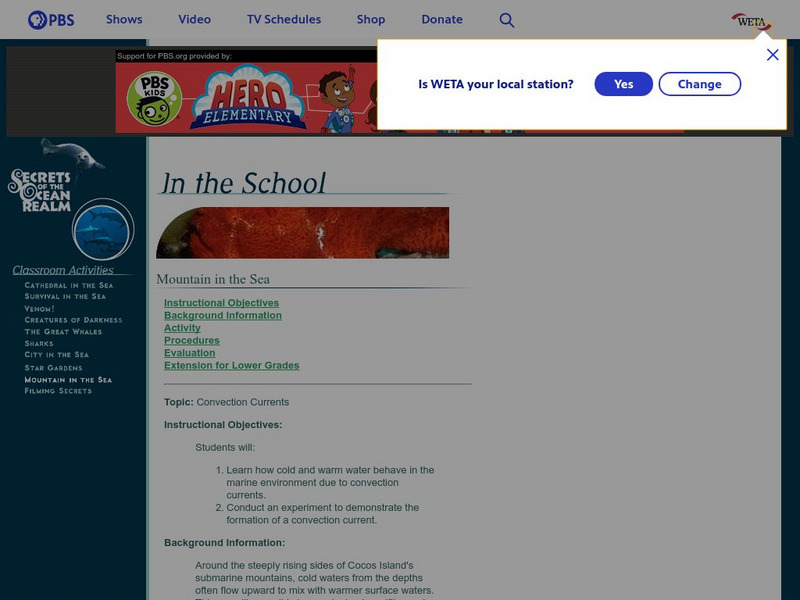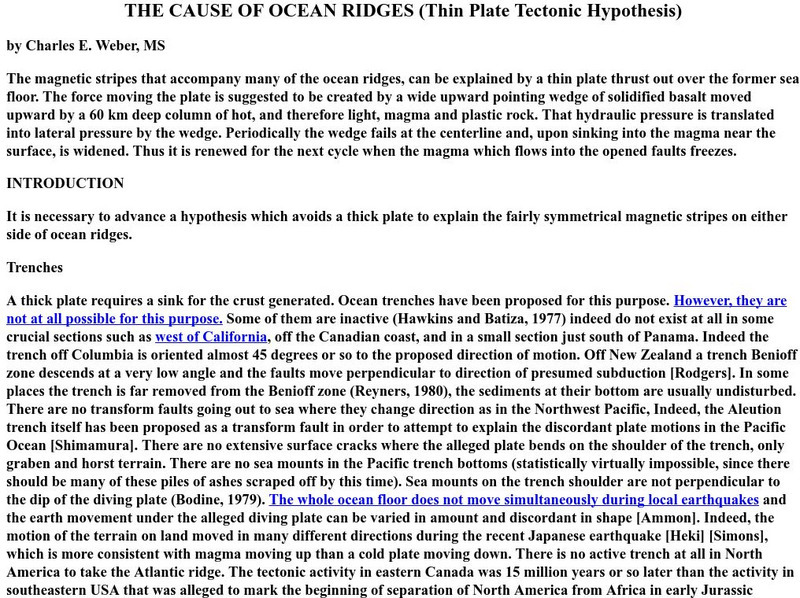Hi, what do you want to do?
E-learning for Kids
E Learning for Kids: Science: Australia: How Do Environments Affect Living Things?
Noah lives near the Great Barrier Reef. Go explore this diverse habitat with him.
E-learning for Kids
E Learning for Kids: Science: Egypt: Alexandrian Lighthouse: Bodies of Water
Old Asim wants to become a lighthouse keeper. Help him learn about bodies of water.
TED Talks
Ted: Ted Ed: How Big Is the Ocean?
While the Earth's oceans are known as five separate entities, there is really only one ocean. So, how big is it? As of 2013, it takes up 71% of the Earth, houses 99% of the biosphere, and contains some of Earth's grandest geological...
PBS
Pbs Learning Media: Wave Action
Students are asked to explain the interactions between the ocean and the shore.
Scholastic
Scholastic: Wild Animal Watch Dolphins
An informative site about dolphins by Scholastic. Great links to activities and games, other web links about dolphins and a teacher page.
Scholastic
Scholastic: All About Dolphins
Dolphin expert Dan Odell answers basic questions about dolphins and their lives.
American Museum of Natural History
American Museum of Natural History: O Logy: A Sea of Questions About Mangroves
An engaging piece featuring questions that scientists ask when they are researching the seas. Click on the red asterisks and discover even more information!
TED Talks
Ted: Ted Ed: How Life Begins in the Deep Ocean
Educator, Tierney Thys, relates the story of a sea urchin's different phases of development while revealing a beautiful tale of fertilization, development and growth in the deep ocean. [6:02]
Science Education Resource Center at Carleton College
Serc: Detecting El Nino in Sea Surface Temperature Data
Through data analysis and observations of patterns, students learn about normal seasonal sea surface temperature variation as well as extreme variation, as in the case of El Nino and La Nina events, in the equatorial Pacific Ocean.
Science Education Resource Center at Carleton College
Serc: Dive and Discover: Expeditions to the Seafloor
Dive and Discover immerses you into the world of ocean exploration. Through stories, photos, and videos go on board research expeditions that use deep-sea tools and vehicles, and become part of teams of researchers making new discoveries.
Science Education Resource Center at Carleton College
Serc: Tides and Water Levels
This tutoria is an overview of the complex systems that govern the movement of tides and water levels. It is made up of 11 chapters that can be read in or out sequence, and includes many illustrative and interactive graphics to visually...
Lizard Point Quizzes
Lizard Point: Canada: Bodies of Water Quiz Level 1
Try this interactive geography quiz which tests your knowledge about the bodies of water in Canada.
Simon Fraser University
Chem1 Virtual Textbook: Chemical Budgets of Oceanic Elements
As part of the General Chemistry Virtual Textbook, this site examines a variety of topics related to the elements of the oceans. Topics covered include Phosphorus, Carbon, Bicarbonate, Calcite, and more.
Missouri Botanical Garden
Missouri Botanical Garden: Fa Qs About Temperate Oceans
Learn why the ocean is blue. Learn the names of the oceans and how they received their names. Learn how the ocean forms waves.
Missouri Botanical Garden
Missouri Botanical Garden: Rivers & Streams of the World
A great site from The Evergreen Project that provides information about watersheds, how a stream becomes a river, when rivers run into the ocean, longest rivers of the world and much more. There are also other sections of this site that...
Missouri Botanical Garden
Missouri Botanical Garden: Temperate Oceans
This site from the Missouri Botanical Garden is a comprehensive site covering various topics related to temperate oceans. Be sure to check out the ocean animals link on the left side to learn more about the invertebrates that live in the...
Missouri Botanical Garden
Missouri Botanical Garden: Temperate Oceans
How are the Atlantic and Pacific oceans different? At this site from the Missouri Botanical Garden you can click on the "Atlantic and Pacific Oceans," link to learn all about this topic. Study the two animated illustrations given to...
abcteach
Abcteach: Habitats and Biomes
[Free Registration/Login Required] Find a variety of activities for children to do as they learn to identify varying habitats and biomes. Included are links to an even more extensive list of resources under coral reef, desert, grassland,...
TED Talks
Ted: Ted Ed: Why Are Sharks So Awesome?
Sharks have been celebrated as powerful gods by some native cultures. And today, sharks are recognized as apex predators of the world's ocean. What is it that makes these fish worthy of our ancient legends and so successful in the seas?...
PBS
Pbs Kids: Plum Landing: Double Rainbow
After viewing the "Double Rainbow" episode of Plum Landing, students will discuss what they have learned about rainbow parrotfish. Then students will design and post their own illustrations of a school of these rainbow parrotfish.
University of Washington
University of Washington: Coastal Processes and the Continental Margin
Events affecting the continental margin off Washington State are presented. This article comes from the "Thompson Times," an onboard newspaper from the UW's primary research vessel, the Thomas Thompson.
PBS
Pbs, Secrets of the Ocean Realm: Mountain in the Sea
This experiment allows your students to study the effect of temperature on water motion and also to create their own density driven current.
Woods Hole Oceanographic Institution
Woods Hole Oceanographic Institute: Where Can I Get Answers About Oceanography?
This site provides answers to frequently asked questions about oceanography. Find out more about ocean science by following the link above. What is the difference between oceanography and marine biology?






